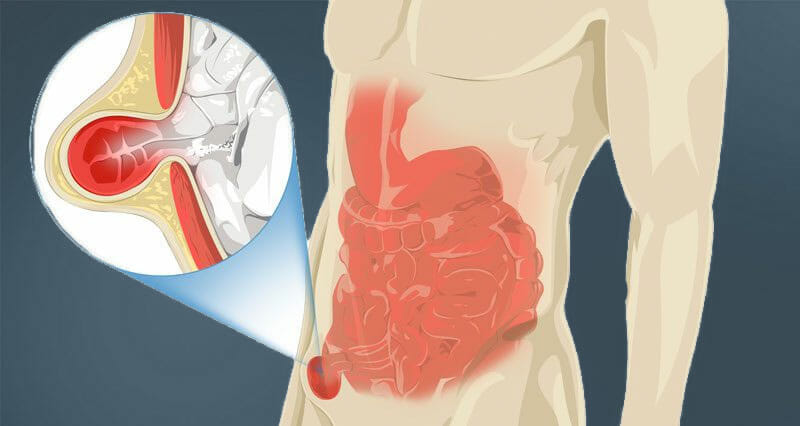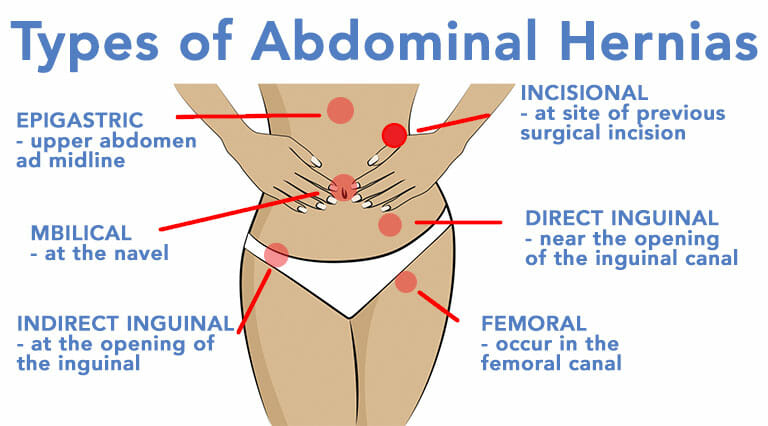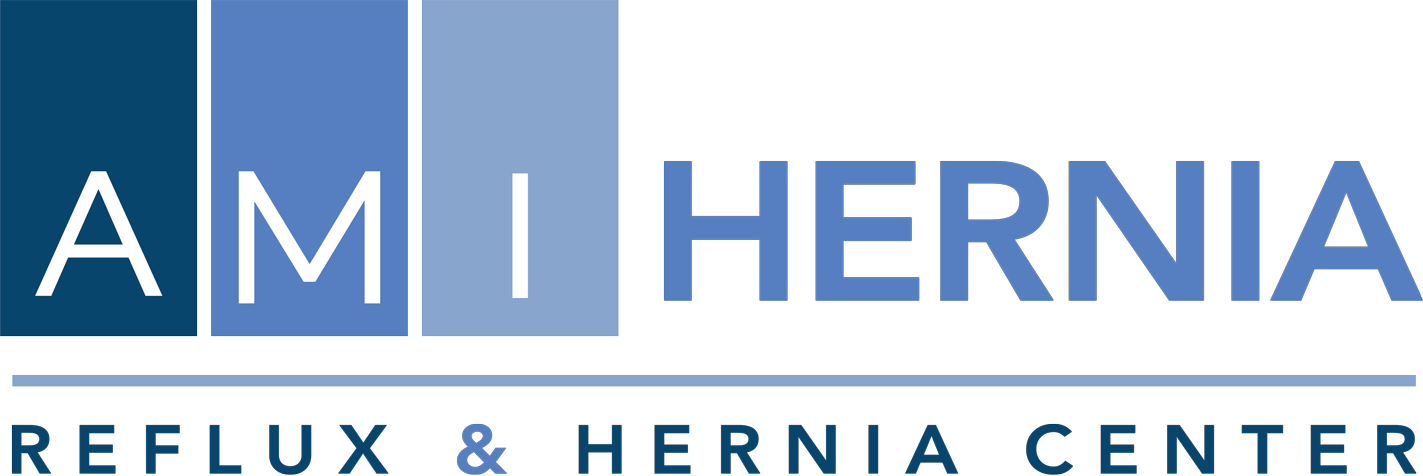In the United States, over 600,000 hernia repair operations are performed annually. Many of these repairs are performed by the conventional “open” method whereas some are performed laparoscopically (minimally invasive). Laparoscopic hernia repair is a relatively new procedure that offers patients less postoperative pain, better cosmetic results and a quicker return to work and normal activities.
WHAT IS A HERNIA?
A hernia is a weakness in the abdominal wall resulting in the abnormal protrusion of abdominal contents (e.g. intestines) through the weakness or defect.
Similar to the inner tube pushing through a damaged tire, the inner lining of the abdomen pushes through the weakened area of the abdominal wall. As the hernia enlarges over time, it can become painful and, in some instances, may lead to more serious problems requiring emergency surgery.

WHAT CAUSES HERNIAS?
Hernias happen one of two ways:
1) ACQUIRED: you overexerted yourself
2) CONGENITAL: you were born with it
There are natural areas of potential weakness throughout our abdominal wall. Hernias can develop at these or other areas due to heavy strain, aging, injury, an old incision or a weakness present from birth.
Hernias can occur at any age and are more common in men. Most hernias in children are congenital. In adults, a natural weakness or strain from heavy lifting, persistent coughing or constipation can cause the abdominal wall to weaken or separate resulting in a hernia.
HOW DO I KNOW IF I HAVE A HERNIA?
Larger hernias are usually easy to identify, although smaller ones may be a bit more challenging. Hernias present as a bulge under the skin that may come and go depending on your position (standing vs. lying down) or during periods of straining or exertion (lifting a heavy object or coughing). Some bulges are painless, while others may present as severe pain. Most people experience a dull ache that may worsen during periods of prolonged standing or during periods of exertion or straining. The severe, continuous pain, redness and tenderness are signs that the hernia may be entrapped or strangulated. These symptoms are cause for concern and you should seek immediate attention.
WHAT ARE THE DIFFERENT TYPES OF HERNIA?

The most common hernias are:
- Inguinal (groin), the most frequent type
- Sports hernia (groin area)
- Umbilical, around the belly button
- Incisional, through a scar
- Hiatal, a small opening in the diaphragm that allows the upper part of the stomach to move up into the chest
Other existing types of hernias:
- Spigelian hernia, (lateral ventral hernia)
- Femoral hernia, (below the groin/inguinal area)
- Epigastric hernia, (upper abdominal wall hernia)
- Internal hernia, (hernia within the abdominal cavity)
TWO WORDS ABOUT EMBARRASSMENT
Don’t be. Because of a hernia’s location, some people are embarrassed and avoid telling anyone or seeing the doctor. But there’s only one way out: fix it. The sooner you do, the better you’ll feel — physically and emotionally.
If you are ready to get treat, please visit our Hernia Treatment page or Request an Appointment with us.
There are any risks for a Hernia Surgery?
According to WebMD , like all surgeries, having your hernia removed comes with a number of possible complications. So please, make sure to Choose the correct Doctor to conduct your Consultation and Surgery procedure.
LET US HELP YOU!
REQUEST AN APPOINTMENT
Fill the form below so one of our staff members can contact you, or give us a call at:
475.256.6620.

